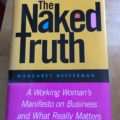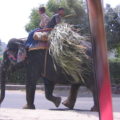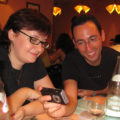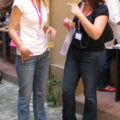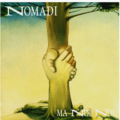I wrote earlier about Italian superstitions, including the dreaded colpo d’aria – a draft of cold air, blamed for everything from head colds to paralysis. Zeev responded:
“Christmas of ’87 was the first time I went to Italy. At that time I was living in Ticino [the Italian part of Switzerland] for an extended period; I have good memories from the area, but being in Mendrisio in the evenings is like being alone in the desert. A few days before Christmas, I realized that being there during the holiday season would be even worse, so I decided to use the time to see some people in Germany and Sweden.
I took the train to Köln. The cars were full of happy Italians travelling north for a vacation. There was one drawback to the company: everybody was smoking heavily. I had quit smoking about 10 years earlier, and had difficulty with smoke. I asked them to do me a favor and stop smoking in the compartment, but their understanding of the situation was that it was my problem, so I should leave the compartment – which of course wouldn’t solve a thing, as the corridors were also full of smoking Italians. So I opened the window. To my surprise, everybody fled the compartment within seconds. Now I finally know why: colpo d’aria.”
I wish that approach worked for me. We often find ourselves surrounded by smokers at restaurants, but occasionally we also happen to be near a window. If we open it, however, someone is bound to whine about the corrente (draft), a complaint which is always considered reasonable, whereas our complaining about smoke is not taken in the same spirit. One of the few things I miss about life in the United States, and especially California, is the lack of smoke. I will be relieved when Europe catches up.
Which may take a while. Italian restaurateurs are up in arms over a new anti-smoking law, due to come into effect next January, which will force them to create ventilated smoking areas physically separated from non-smoking areas.
A few larger restaurants already have non-smoking sections, though it can be difficult to get seated in them. One place we used to frequent had such an area, but closed it off sometimes when there was a shortage of waiters. Recently, at another restaurant, they didn’t want to seat only three of us in the non-smoking section, because the tables were set for four or five. I had to insist that we were non-fumatori accaniti (ferocious non-smokers). One very good pizzeria near our former home in Milan never had a problem seating us in one of its two large non-smoking rooms, though these were always more crowded than the smoking area. It seems that there is unmet demand, even in Italy, for smoke-free dining.
Sadly, smoking is still very much in vogue here, and socially accepted even for 13- and 14-year-olds. Many kids consider it a declaration of adulthood, and begin as soon as they reach high school, if not earlier. As far as I can tell, their parents don’t even try to combat it, and tobacconists have no qualms about selling cigarettes to young kids. Rossella is one of few non-smokers in her class (students are allowed to smoke on school grounds, although, as of this year, not inside the building); by now she’s made such a fuss about her friends smoking that she’d look like a complete idiot if she ever tried it (good!).
Feb 9, 2004
From March 1st, smoking will be completely banned on all Eurostar and Intercitytrains in Italy. It is already banned on all most regional (local) trains, which leads to scenes of smokers lined up at the door, cigarettes already in hand, as the train pulls into the station. They barely get one foot on the platform before they light up, one after another, hurrying away in a desperately-puffing line.
Apr 16, 2004
I’m pretty certain that Italy’s new rules about non-smoking sections in restaurants will only come into force next January, but, to my surprise and delight, several of our favorite restaurants have already gone completely non-smoking. It appears that some restaurant owners and staff were glad to have the excuse. I wish Austria were as forward-looking. We didn’t get to enjoy any of Vienna’s centuries-famous coffee bars; every one we stepped into reeked of stale smoke and beer. So we ended up at Starbucks, that bastion of American cultural imperialism, where smoking was not allowed.
I finally asked a bar owner why some bars and restaurants have already gone totally non-smoking; I thought the law didn’t go into effect til next year. He explained that the law actually went into effect THIS January, requiring all public places to have a completely separate and ventilated room for smokers, or to ban smoking completely. Those who choose to separate out the smokers have a year’s grace period in which to do the construction; those who have no such intention are supposed to already be completely non-smoking. Of course, this being Italy, there are probably some (many?) who have not yet done anything and will claim, if asked, that they intend to build a smoking section by next January, when in fact they have no such intention (or ability – some places are simply too small), and are just buying themselves and their smoking customers another year.
Interestingly, the recent ban on smoking in pubs in Ireland seems to have gone down well, in spite of strident protests before it went into effect. It was widely supported before the fact by the union of pub employees, and many customers seem now to find that they actually prefer their pubs without smoke. The die-hards are reportedly organizing booze-and-smoking parties in their own homes, which will cause the pubs to lose business (and the neighbors to complain), but won’t damage the alcohol industry.

